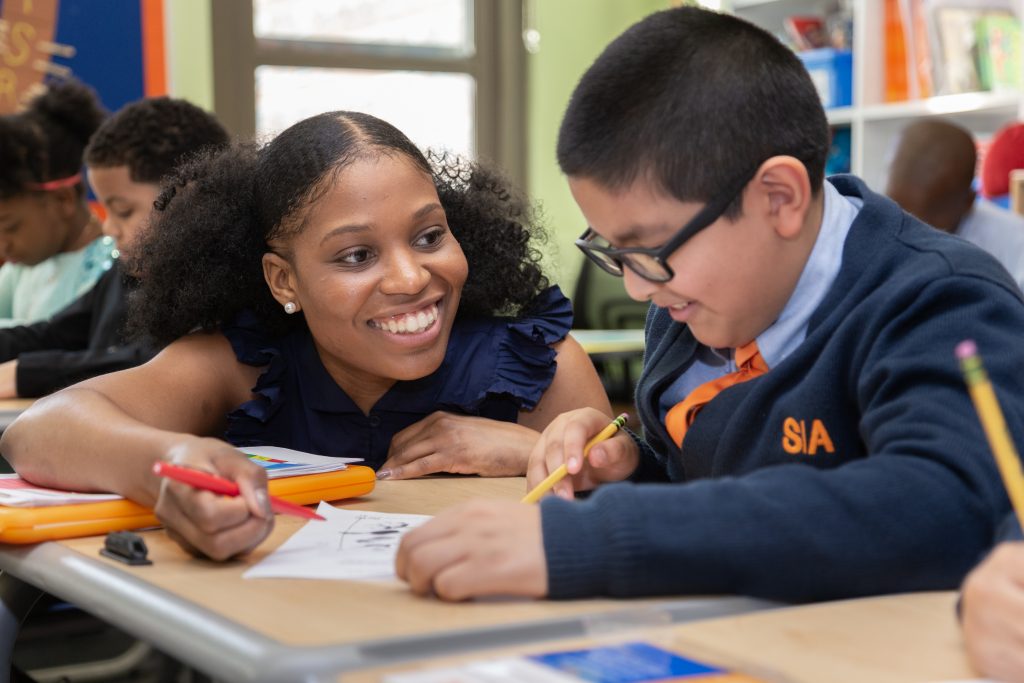Effective parent and educator communication is key to student success

Effective parent and educator communication is key to student success, but we know that great collaboration can take many forms. During the RC’s Building the Dream Team: Parents & Educators as Partners webinar, SA parent and Business Operations Manager Nana Alawiye shared that “a parent and educator partnership builds the whole child.” We couldn’t agree more, so we’re sharing our favorite tips from the webinar for caregivers and teachers to communicate with one another—all in service of great learning!
Establish clear expectations for everyone—and keep purpose front and center
Parents and educators must agree on communication expectations, so everyone is aware of what they need to do to work together—and remain invested in doing so! As Linda Trotter, an SA first grade teacher, thoughtfully shared, “we are talking about someone’s child and their families love them deeply. We, as educators, need to make sure we are communicating directly and warmly so they trust us to take care of their kids.” Educators should outline when and how they’d like to be in touch and most importantly, why these touch points are so essential. Families should ask questions if expectations are unclear—and feel empowered to open discussion in order to improve collaboration.
Create concrete and simple systems
There are so many ways to communicate these days—texting, calling, emailing…the list goes on and on! When educators and families agree to chat in a simple and specific way, and stick to times and channels that work best for all, communication runs smoothly. As Nana mentioned, “parents and educators need to be aligned to make sure that we implement what needs to be done for the sake of the child.” Whether it’s scheduling a weekly phone call or a bi-weekly text update, or determining that a great time to check in is right after dismissal, having clear systems for touching base is key.
Know your role! (What it is and what it isn’t!)
It’s not a parent’s job to teach kids math, and it’s not an educator’s responsibility to be sure students pack up for the next day. However, everyone must know how their role impacts student success and be in the loop about how to help at home or in school. Parent and RC leader Stacey Gershkovich reflected, “as an educator, it’s my job to share with families about what’s going on with their kids in the classroom. And as a parent, it’s my job to understand how I can support what is going on in the classroom.” Families should reinforce what’s learned in school, and educators should let families know how they can strengthen learning outside of it.
Want a deeper dive into effective parent and educator communication? Check out the Robertson Center’s Building the Dream Team webinar below for many more great ideas!
"*" indicates required fields
Access a wide array of articles, webinars, and more, designed to help you help children reach their potential.
NEWSLETTER
"*" indicates required fields
